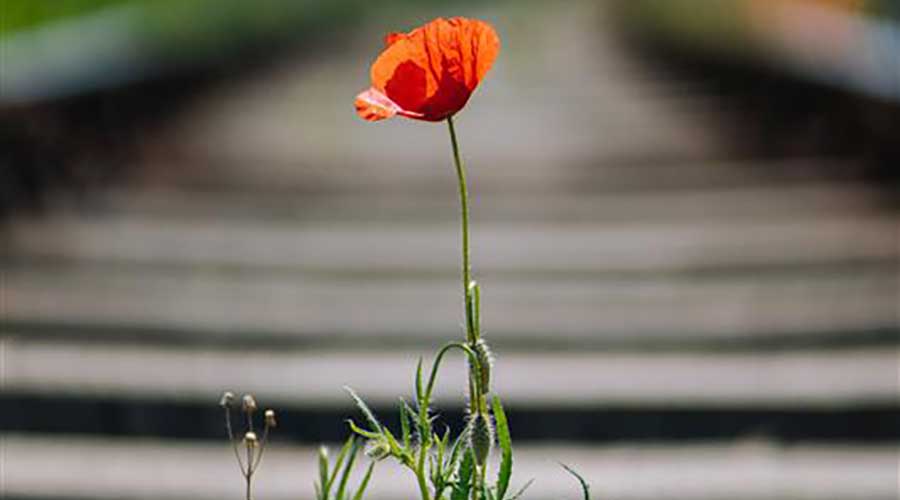Stay updated on news, articles and information for the rail industry
 railPrime
railPrime
February 2018
Rail News: Passenger Rail
The pressure on, SEPTA gets it right for a victory parade

By Julie Sneider, Senior Associate Editor
When the Philadelphia Eagles beat the Minnesota Vikings on Jan. 21 to claim the NFC football championship, Jeffrey Knueppel knew the city of Philadelphia's expectations for a successful celebratory parade would be sky high if the Eagles went on to win Super Bowl LII.
After all, the Eagles had fought their way to the Big Game twice before, but lost both times. So, on Monday, Jan. 22, Knueppel started making plans for how Southeastern Pennsylvania Transportation Authority (SEPTA) — where he is general manager — would transport the huge crowds of Eagles fans to a parade where they, at long last, could celebrate their Super Bowl championship team.
Knueppel didn't want a repeat of 2008, when the agency failed to provide timely transport for the thousands of Philadelphia baseball fans who attended the parade honoring the Phillies two days after they won the World Series.
With that unhappy memory in mind, Knueppel and SEPTA officials knew they had to get transportation for the Super Bowl parade just right. So even before the NFL team traveled to Minneapolis to play in the Super Bowl, SEPTA's operations team started making plans.
The first thing the SEPTA team did was open their playbook from September 2015, when Philadelphia hosted Pope Francis's two-day visit. For that event, the agency had more than a year to draw up its transportation plan.
Consolidated stops to manage crowds
Like with the papal visit, SEPTA planned to consolidate the number of train stations that would be open the day of the Eagles parade. The route started at the Sports Complex in South Philadelphia at Broad Street and Pattison Avenue. From there, it extended north along Broad Street to the Philadelphia Museum of Art. End to end, the entire route was about 5 miles.
"There's a safety benefit to managing the crowds at a fewer number of stations, and when you have fewer stations open, you also get faster trip times," says Knueppel.

For some passengers, that meant getting to their destination with one or no stops after boarding.
Stretching the parade route over a longer distance than the 2008 parade also would help SEPTA manage crowds and transport riders into and out of the event more quickly, says Knueppel. Another help: Independence Blue Cross covered the cost of parade-day rides on the Market-Frankford and Broad Street lines, which are SEPTA's high-capacity lines and were promoted to riders as their best option for getting to and from the parade.
Days after the Eagles took down the New England Patriots in a nail-biter, SEPTA launched a special website complete with transportation details, maps and ticket information for the Feb. 8 victory celebration. Crews set up temporary barricades, chains and portable toilets at the stations that would remain open; SEPTA officials met with municipalities, first responders and labor unions to go over in detail the agency's operational plan.
Knueppel also held a press conference to inform the public how SEPTA would be ready and available to get them to and from the party. Knueppel advised fans to get to stations early on parade day — and to be prepared for long lines.
For those who planned to use SEPTA Regional Rail service, the agency distributed about 50,000 special single-day "Independence passes" at a discount, which sold out in a day-and-a-half. Making those passes available helped SEPTA plan its vehicle capacity needs.
A million trips in less than a day
By the time the parade was over, SEPTA had carried about 500,000 riders to the event and another 500,000 riders afterward for a total of 1 million trips, Knueppel estimates. That's what SEPTA typically would transport on a normal day, "but you have to remember we did that over a very concentrated time period," he says.
For the most part, the day seemed to run smoothly.
"I'm usually tough on our performance," Knueppel says. "But I can go by what the municipalities, the riders and the press are saying, which is that generally we had a very good day."
He credits SEPTA employees for their hard work and extra efforts.
"Fifty-two years of pent-up desire to have the Eagles win the Super Bowl — that certainly made us nervous," says Knueppel. "But we put a good plan together and I think it came together well. Our employees performed fantastically. They knew how important this event was to the region."
Keywords
Browse articles on Southeastern Pennsylvania Transportation Authority SEPTA Philadelphia Eagles Minnesota Vikings New England Patriots Jeffrey Knueppel Super Bowl LII Philadelphia Phillies Market-Frankford Broad Street Regional Rail Independence Blue CrossContact Progressive Railroading editorial staff.


 LRW Honors Amtrak’s Acheson As Railway Woman Of The Year
LRW Honors Amtrak’s Acheson As Railway Woman Of The Year
 From Editor-In-Chief Foran: Of Gender Equity And Inclusion
From Editor-In-Chief Foran: Of Gender Equity And Inclusion
 Spotlight On Some Of Today’s Rail Safety Products
Spotlight On Some Of Today’s Rail Safety Products
 Women of Influence in Rail eBook
Women of Influence in Rail eBook








